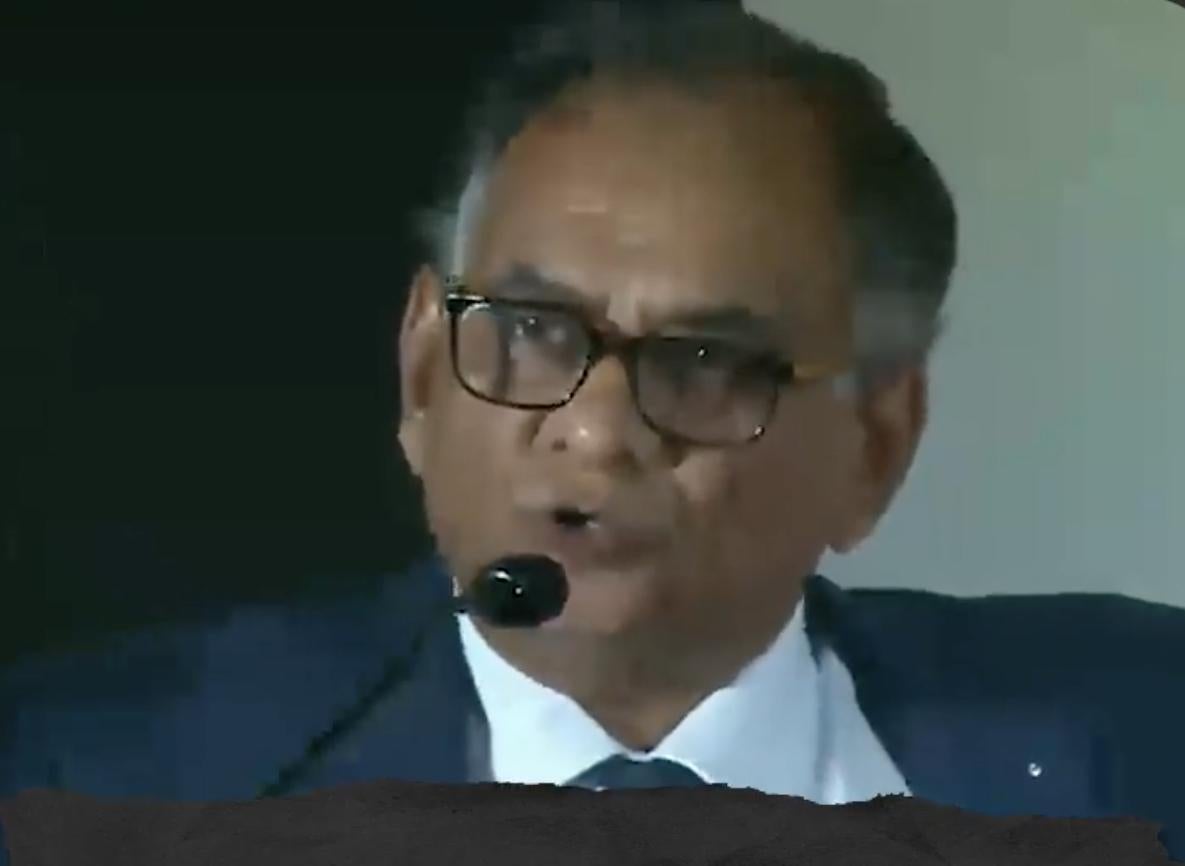Indian judge goes viral with speech claiming upper-caste Brahmins 'should always be at the helm'
Video of Kerala high court judge Justice V Chitambaresh's speech has been widely shared on social media in India

A high court judge in the Indian state of Kerala has sparked controversy by suggesting members of the highest Hindu caste should “always be at the helm” and questioning the system of job and higher education quotas for members of traditionally downtrodden communities.
Since its independence from Britain, India has reserved a certain percentage of government positions and other benefits for so-called “scheduled” castes - communities that have lost out most to the country’s historic system of rigid social hierarchy.
But these reservations have led to resentment among some of those in the upper and general castes who feel that their own access to opportunities is reduced.
Speaking as a special guest at a three-day “global summit” of Tamil Brahmins in Kochi city last week, high court judge Justice V Chitambaresh made comments which, critics have said, perpetuate the anarchic belief in the inherent superiority of upper-case Brahmins.
“Who is a Brahmin?” Justice Chitambaresh can be seen asking the audience, in a video of his speech which has since gone viral on social media. “A Brahmin is twice born, because of his poorva janma sukratham (the good deeds of his past life).
“He has got certain distinct characteristics, clean habits, lofty thinking, sterling character, mostly vegetarian, a love of Carnatic music. All good qualities rolled into one is a Brahmin.”
At a point in his speech, the judge appears to acknowledge the controversial nature of his comments, suggesting that “occupying a constitutional post, it may not be proper for me to express any opinion [on the matter]”.
“It is for you to deliberate as to whether reservation should be based on the community or caste alone,” he said. “I am not expressing any opinion at all. But I am only kindling your interest or reminding you that there is a platform for you to agitate or voice your concern that [there should be] economic reservation alone.”
The judge said it was up to Brahmins to be more vocal and coordinated in advocating for their caste, suggesting that “only the crying child will get milk” and that “the time has come for us to play in an orchestra, and not to continue to play solo”.
“It may be noted that a Brahmin is never communal,” he said. “He loves people, he is always considerate, he is an ahimsa vadi (a non-violent person). He is one who liberally donates for any laudable cause. Such a person should always be at the helm of affairs.”
Later at the conference, the Kerala Brahmana Sabha president Karimpuzha Raman said Brahmins in the state had the power to decide elections if only they would “get into vote bank politics” - the common but much-criticised practice of grouping and appealing to castes or communities for their votes.
Shabnam Hashmi, a prominent social activist and human rights campaigner, called Justice Chitambaresh’s comments “absolutely shocking”. Such a speech from a high court judge was “totally unconstitutional”, she said.
The journalist Harini Calamur suggested “someone should look at all the judgements he has made, and check for caste bias”.
And another journalist, Tejas Harad, said that “Brahmins like Justice V Chitambaresh can be found across judiciary, media, academia, civil society and politics”. She added: “Pray tell me how India is a democracy.”
Join our commenting forum
Join thought-provoking conversations, follow other Independent readers and see their replies
Comments
Bookmark popover
Removed from bookmarks